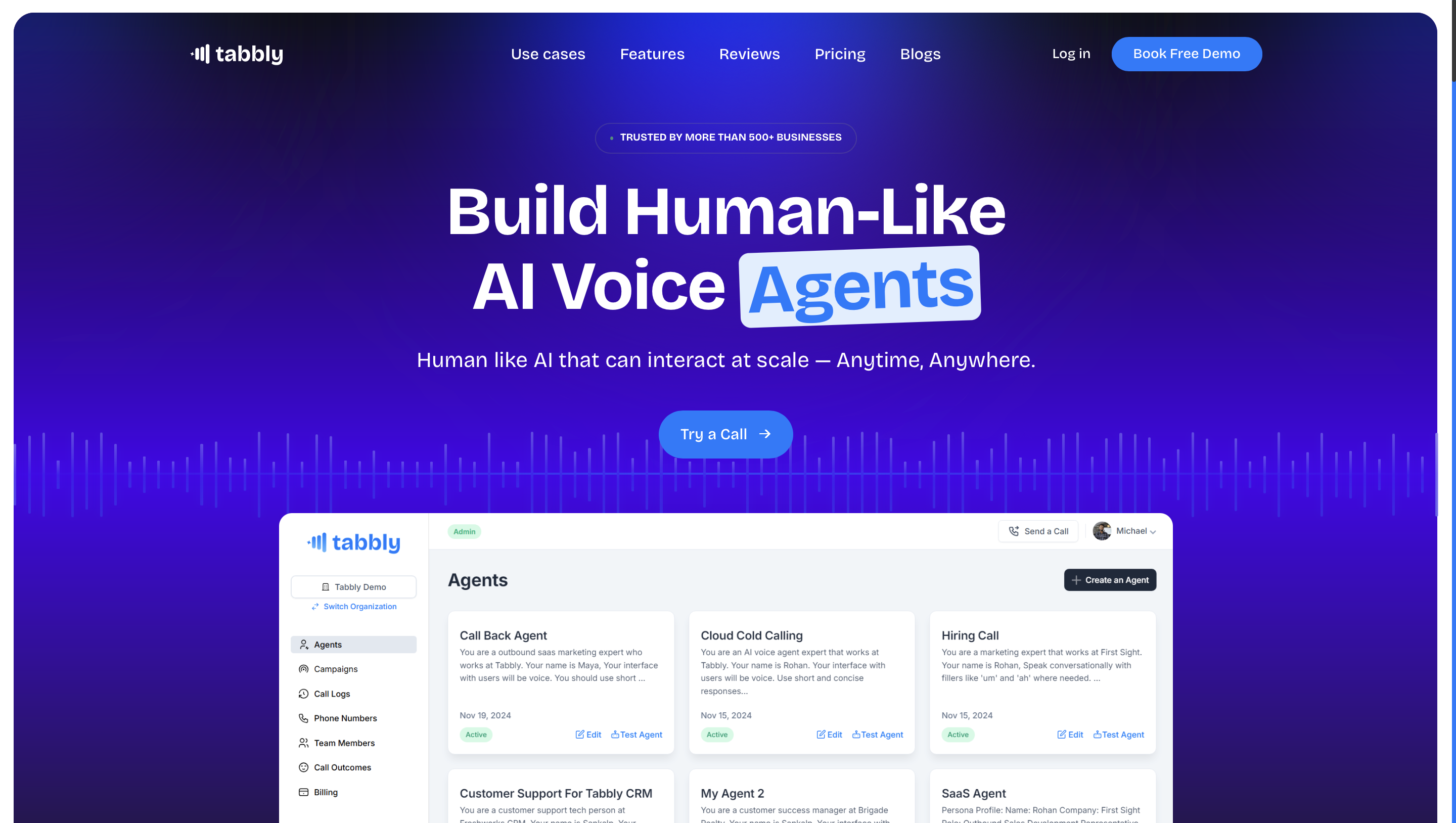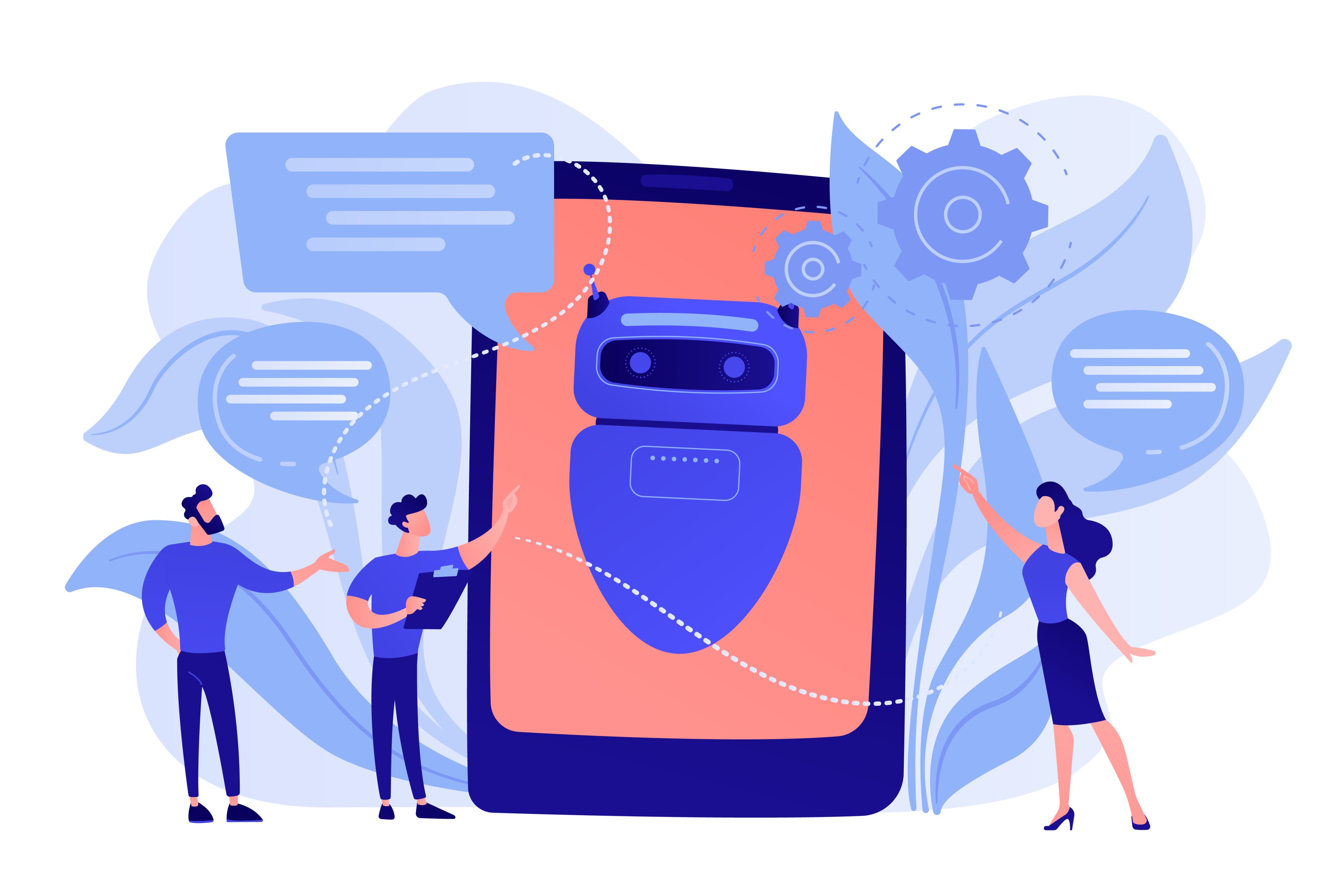In today’s fast-paced digital world, customer expectations are higher than ever. Customers want immediate, efficient, and personalized assistance—whenever and wherever they need it. Enter AI voice assistants: a game-changing technology that has been transforming how businesses deliver customer support. With the ability to provide quick responses, handle a variety of tasks, and operate 24/7, AI voice assistants are quickly becoming indispensable tools for companies looking to enhance their customer service operations.
This blog explores the benefits and use cases of AI voice assistants in customer support, showing how they can improve efficiency, reduce costs, and provide a superior customer experience.
What Are AI Voice Assistants?
AI voice assistants are intelligent software systems powered by artificial intelligence, designed to understand and respond to voice commands. They rely on natural language processing (NLP), machine learning (ML), and voice recognition technologies to interpret customer requests and provide accurate responses. Unlike traditional chatbots, AI voice assistants engage in spoken conversations, making them more interactive and user-friendly.
These systems are capable of handling a wide range of tasks, from answering basic inquiries to more complex activities like processing orders or managing customer accounts. Some popular examples of AI voice assistants include Tabbly, Amazon Alexa, Google Assistant, and Siri, while businesses have begun integrating their own specialized voice assistants into their customer support frameworks.
learn more on how AI Voice agents work?
Benefits of Using AI Voice Assistants in Customer Support
24/7 Availability: AI voice assistants can operate around the clock, providing continuous support without the need for human agents to be available at all times. This ensures that customers can get assistance whenever they need it, whether it’s during office hours or in the middle of the night.
Cost Efficiency: By automating repetitive tasks and answering common customer inquiries, businesses can significantly reduce the need for large customer service teams. This lowers labor costs while still ensuring high-quality service.
Scalability: As businesses grow, so does the volume of customer inquiries. AI voice assistants can effortlessly handle an increasing number of interactions without the need for additional staff, making them a scalable solution for growing companies.
Enhanced Customer Experience: AI assistants provide instant responses to customer queries, leading to quicker resolutions and a smoother experience. Furthermore, AI can offer personalized recommendations and responses based on past interactions, improving customer satisfaction.
Reduced Response Time: With AI voice assistants, customers don’t have to wait in long queues. AI can process queries instantly, providing immediate feedback and reducing the need for human intervention in routine inquiries.
Improved Data Analysis: AI voice assistants can gather valuable insights from customer interactions, allowing businesses to track trends, identify common pain points, and improve their overall support strategy.
Key Features of AI Voice Assistants in Customer Support
Natural Language Understanding (NLU): One of the key features of AI voice assistants is their ability to understand and process human language. They use NLP to decipher not just the words, but also the intent behind customer requests, enabling them to provide relevant and accurate answers.
Personalization: AI assistants are capable of personalizing interactions based on customer data. They can remember previous interactions, suggest products or services based on past purchases, and offer targeted promotions tailored to individual preferences.
Integration with CRM and Helpdesk Systems: AI voice assistants can be integrated with customer relationship management (CRM) systems and helpdesk platforms. This allows them to access up-to-date customer information and provide more accurate, context-rich responses.
Multilingual Support:As businesses expand globally, multilingual support becomes increasingly important. AI voice assistants can be programmed to understand and respond in multiple languages, breaking down language barriers and providing a more inclusive customer experience.
Use Cases of AI Voice Assistants in Customer Support
Automated Call Centers
AI voice assistants can take over simple and repetitive tasks that would normally require a human agent. For example, they can handle inquiries about order status, account balance, or basic troubleshooting. More complex issues can be escalated to human agents.
Example: A customer calls to inquire about the status of their delivery. The AI assistant instantly provides the tracking number and estimated delivery time, freeing up agents to focus on more complex issues.
Lead Generation and Qualification
AI voice assistants can engage with potential customers, qualify leads by asking relevant questions, and then pass on the qualified leads to sales teams for further follow-up. This allows sales teams to focus on high-value prospects rather than wasting time on unqualified leads.
Example: A potential customer calls a car dealership's customer support line. The AI assistant asks questions about preferences, budget, and features, then schedules a test drive appointment with a human agent.
Customer Service Automation
Routine customer service tasks such as updating account information, processing returns, and providing product recommendations can all be handled by AI voice assistants, reducing the workload of human agents and improving efficiency.
Example: A customer needs to process a return. Instead of waiting for a human agent, they can simply speak to the AI assistant, which processes the return request and initiates the refund.
E-Commerce Support
In the e-commerce sector, AI voice assistants can guide customers through the shopping process, provide product recommendations, and answer common questions. They can also assist with post-purchase support, such as tracking orders and processing returns.
Example: A customer calls an online store to inquire about a product’s availability. The AI assistant checks stock levels, recommends alternative products, and assists with the purchase process.
Healthcare and Insurance
AI voice assistants are used in the healthcare and insurance industries to provide 24/7 support. They can help with appointment scheduling, answering common health-related questions, or providing basic insurance policy details.
Example: A patient calls a medical clinic to schedule an appointment. The AI assistant asks about symptoms, suggests available time slots, and books the appointment automatically.
Banking and Finance
In the banking and finance sectors, AI voice assistants can help customers with tasks like checking account balances, transferring funds, and processing loan applications. They can also provide fraud alerts and answer policy-related questions.
Example: A customer calls a bank to inquire about their account balance. The AI assistant quickly provides the information and can also suggest ways to save on fees or recommend financial products.
Best Practices for Implementing AI Voice Assistants in Customer Support
Ensure Seamless Human Handoff: While AI is great for automating routine tasks, it’s essential that customers can easily switch to a human agent when necessary. A seamless handoff ensures that the customer does not have to repeat themselves when escalating an issue.
Focus on Data Privacy: As AI systems gather and analyze customer data, it’s crucial for businesses to ensure that customer information is kept secure and complies with privacy regulations like GDPR.
Provide Ongoing Training for AI: AI voice assistants should be regularly updated and trained on new customer data and feedback. This ensures that the assistant remains accurate and relevant, improving over time.
Set Clear Expectations: Customers should know when they are interacting with an AI assistant and when they can expect a human agent to take over. Transparency helps to manage expectations and reduce frustration.
Test and Monitor Performance: Regular testing and monitoring of AI systems is vital to ensuring they perform well. By identifying issues early on, businesses can optimize their AI voice assistants for better performance.
Tabbly: AI Voice Agents for Seamless Customer Interactions
Tabbly is a cutting-edge platform that enables businesses to create human-like AI voice agents capable of engaging customers across multiple channels, including websites, mobile apps, and phone calls. Designed for scalability and ease of use, Tabbly empowers organizations to automate customer interactions, enhance support services, and drive sales conversions.
Key Features
- Multilingual Support: Tabbly's AI voice agents can communicate in over 50 languages, ensuring global accessibility and inclusivity.
- No-Code Interface: Businesses can build and deploy voice agents without any coding expertise, streamlining the development process.
- Real-Time Analytics: The platform provides actionable insights into customer interactions, enabling continuous improvement of service quality
- Proactive Engagement: Tabbly's agents can initiate conversations, enhancing lead generation and customer engagement.
- Seamless Integration: The platform integrates effortlessly with existing CRM systems and communication tools, ensuring a unified customer experience.
Use Cases
- Customer Support: Automate routine inquiries and provide 24/7 assistance to customers.
- Sales Outreach: Engage potential leads with personalized voice interactions, driving conversions.
- HR Screening: Conduct preliminary interviews and assessments, streamlining the recruitment process.
- Education: Deliver interactive learning experiences through voice-based tutoring.
Pricing
Tabbly offers a pay-per-minute pricing model, starting at ₹6.99 per minute, making it accessible for businesses of all sizes.
For more information or to schedule a demo, visit Tabbly.io.
What are AI voice assistants?
AI voice assistants are automated systems that use artificial intelligence and natural language processing (NLP) to understand and respond to voice commands. They are designed to interact with customers, providing support, answering questions, and performing tasks without human intervention.
How do AI voice assistants improve customer support?
AI voice assistants enhance customer support by providing 24/7 availability, handling multiple customer interactions simultaneously, offering quick responses, and automating repetitive tasks. This leads to improved customer satisfaction and reduced wait times.
What are the benefits of using AI voice assistants in customer service?
The key benefits include cost reduction, enhanced efficiency, improved customer satisfaction, personalized support, and the ability to handle a high volume of inquiries without compromising on quality or response time.
Can AI voice assistants handle complex customer queries?
Yes, AI voice assistants equipped with advanced natural language processing (NLP) capabilities can understand and resolve a wide range of customer queries. For complex issues, they can escalate the matter to human agents while providing context for faster resolution.
Are AI voice assistants capable of speaking multiple languages?
Yes, many AI voice assistants are designed to support multiple languages, making them ideal for businesses with global or diverse customer bases. This feature allows for seamless communication across regions.
What industries can benefit from AI voice assistants?
Industries such as e-commerce, banking, healthcare, telecommunications, and education can all benefit from AI voice assistants. They can be used for customer support, sales, lead generation, appointment scheduling, and more.









